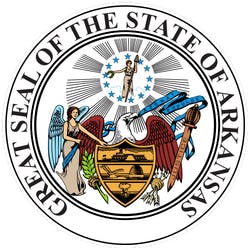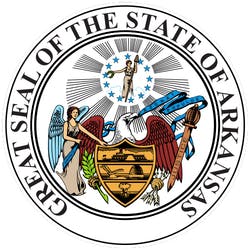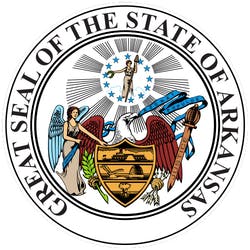All Businesses
-
About UsArkansas Medical Marijuana Information On 4/27/2017 the Arkansas Board of Health unanimously approved rules and regulations regarding registration cards, testing, and labeling. On 6/30/02017, the Arkansas Department of Health began accepting patient applications for medical marijuana registry and ID cards. Each application must include an Arkansas driver’s license/ID, a $50 non-refundable application fee, a written certification from an Arkansas physician, and an application form. The medical marijuana card will feature a photo of the patient or caregiver, and must be renewed annually. Ballot Issue 6(2016), or the Arkansas Medical Marijuana Amendment was an initiative petition passed on November 8th, 2016 by the voting populace of Arkansas. The herein named Arkansas Medical Amendment makes legal the use, possession, and distribution of cannabis, commonly called marijuana, for medical purposes. Arkansas Medical Marijuana qualifying patients (see list of qualifying conditions below) or designated caregivers selected by the qualifying patient in possession of a Registry Identification Card may possess up to 2.5 ounces of usable cannabis. Unique to the Arkansas Medical Marijuana amendment, any marijuana paraphernalia associated with medical use of cannabis is legal. In order to protect patients, Arkansas Medical Marijuana amendment ensures that no school or landlord may penalize an individual for their being a qualifying patient, nor may an employer discriminate against anyone based on their past or present status as a qualifying patient. A qualifying patient may not be denied custody or visitation rights with minors, and Designated Caregivers may receive reimbursement of costs or expenses for assisting a qualified medical cannabis patient. Visiting patients with the equivalent of a Registry Identification Card may purchase usable cannabis after being issued a 30 day temporary Registry Identification Card by the Arkansas Department of Health, providing the same qualifying condition exists as defined by law. Physicians: The Arkansas Department of Health has 120 days from November 8th, 2016 to establish and regulate Registry Identification Cards. A sliding scale for fees will be established based on patient income. In this time, the Arkansas Department of Health will establish appropriate medical marijuana education requirements and materials, if any, required for doctors to provide written certifications for qualifying patients. Individuals may become a qualified patient by submitting a written certification from a licensed physician that he or she is suffering from one of the qualifying medical conditions described below. A minor may become a qualifying patient if their doctor has explained the benefits and risks of medical cannabis to their parents or legal guardians and that they serve as the qualified patient’s designated caregivers. A Written Certification is a document signed by a doctor stating that in that doctor’s professional opinion, following a full evaluation of the patient’s medical history and current condition made through a bona-fide doctor-patient relationship, that the patient would benefit from medical marijuana use. Doctors must specify the patient’s qualifying medical condition within the Written Certification. Physicians are legally protected from penalty or prosecution for providing Written Certifications as long as they are operating within the specifications of Arkansas law. Doctors may not examine a patient for medical marijuana certification at a Care Center or offer any discounts to patients for agreeing to use a particular Care Center. Qualifying Conditions: – Cancer- Glaucoma- Positive status for human immunodeficiency virus/acquired immune deficiency syndrome- Hepatitis C- Amyotrophic Lateral Sclerosis- Tourette’s syndrome- Crohn’s disease- Ulcerative Colitis- Post-Traumatic Stress Disorder- Severe Arthritis- Fibromyalgia- Alzheimer’s Disease Or a chronic or debilitating disease or medical condition of its treatment that produces one or more of the following: – Cachexia or wasting syndrome- Peripheral Neuropathy- Intractable Pain, or pain that has shown not to respond to ordinary medical treatments or surgical measures for more than 6 months. – Severe nausea- Seizures, including without limitation those characteristic of epilepsy- Severe and persistent muscle spasms, including without limitation those characteristic of multiple sclerosis. Arkansas Medical Marijuana Locations Arkansas Medical Marijuana Physicians will service, but will not be limited to, the following areas: Little Rock, Fort Smith, Fayetteville, Springdale, Jonesboro, North Little Rock, Conway, Rogers, Pine Bluff, Bentonville and more.
-
About UsArkansas Medical Marijuana Information On 4/27/2017 the Arkansas Board of Health unanimously approved rules and regulations regarding registration cards, testing, and labeling. On 6/30/02017, the Arkansas Department of Health began accepting patient applications for medical marijuana registry and ID cards. Each application must include an Arkansas driver’s license/ID, a $50 non-refundable application fee, a written certification from an Arkansas physician, and an application form. The medical marijuana card will feature a photo of the patient or caregiver, and must be renewed annually. Ballot Issue 6(2016), or the Arkansas Medical Marijuana Amendment was an initiative petition passed on November 8th, 2016 by the voting populace of Arkansas. The herein named Arkansas Medical Amendment makes legal the use, possession, and distribution of cannabis, commonly called marijuana, for medical purposes. Arkansas Medical Marijuana qualifying patients (see list of qualifying conditions below) or designated caregivers selected by the qualifying patient in possession of a Registry Identification Card may possess up to 2.5 ounces of usable cannabis. Unique to the Arkansas Medical Marijuana amendment, any marijuana paraphernalia associated with medical use of cannabis is legal. In order to protect patients, Arkansas Medical Marijuana amendment ensures that no school or landlord may penalize an individual for their being a qualifying patient, nor may an employer discriminate against anyone based on their past or present status as a qualifying patient. A qualifying patient may not be denied custody or visitation rights with minors, and Designated Caregivers may receive reimbursement of costs or expenses for assisting a qualified medical cannabis patient. Visiting patients with the equivalent of a Registry Identification Card may purchase usable cannabis after being issued a 30 day temporary Registry Identification Card by the Arkansas Department of Health, providing the same qualifying condition exists as defined by law. Physicians: The Arkansas Department of Health has 120 days from November 8th, 2016 to establish and regulate Registry Identification Cards. A sliding scale for fees will be established based on patient income. In this time, the Arkansas Department of Health will establish appropriate medical marijuana education requirements and materials, if any, required for doctors to provide written certifications for qualifying patients. Individuals may become a qualified patient by submitting a written certification from a licensed physician that he or she is suffering from one of the qualifying medical conditions described below. A minor may become a qualifying patient if their doctor has explained the benefits and risks of medical cannabis to their parents or legal guardians and that they serve as the qualified patient’s designated caregivers. A Written Certification is a document signed by a doctor stating that in that doctor’s professional opinion, following a full evaluation of the patient’s medical history and current condition made through a bona-fide doctor-patient relationship, that the patient would benefit from medical marijuana use. Doctors must specify the patient’s qualifying medical condition within the Written Certification. Physicians are legally protected from penalty or prosecution for providing Written Certifications as long as they are operating within the specifications of Arkansas law. Doctors may not examine a patient for medical marijuana certification at a Care Center or offer any discounts to patients for agreeing to use a particular Care Center. Qualifying Conditions: – Cancer- Glaucoma- Positive status for human immunodeficiency virus/acquired immune deficiency syndrome- Hepatitis C- Amyotrophic Lateral Sclerosis- Tourette’s syndrome- Crohn’s disease- Ulcerative Colitis- Post-Traumatic Stress Disorder- Severe Arthritis- Fibromyalgia- Alzheimer’s Disease Or a chronic or debilitating disease or medical condition of its treatment that produces one or more of the following: – Cachexia or wasting syndrome- Peripheral Neuropathy- Intractable Pain, or pain that has shown not to respond to ordinary medical treatments or surgical measures for more than 6 months. – Severe nausea- Seizures, including without limitation those characteristic of epilepsy- Severe and persistent muscle spasms, including without limitation those characteristic of multiple sclerosis. Arkansas Medical Marijuana Locations Arkansas Medical Marijuana Physicians will service, but will not be limited to, the following areas: Little Rock, Fort Smith, Fayetteville, Springdale, Jonesboro, North Little Rock, Conway, Rogers, Pine Bluff, Bentonville and more.
-
About UsCOMING SOON Ballot Issue 6(2016), or the Arkansas Medical Marijuana Amendment was an initiative petition passed on November 8th, 2016 by the voting populace of Arkansas. The herein named Arkansas Medical Marijuana Amendment makes legal the use, possession, and distribution of cannabis, commonly called marijuana, for medical purposes. All Arkansas Medical Marijuana qualifying patients (see the list of qualifying conditions on physicians page) or designated caregiver in possession of a Registry Identification Card may possess up to 2.5 ounces of medically usable cannabis. Additionally, any and all paraphernalia correlated with medical use of marijuana is also legal. Patients are protected by the Arkansas Medical Marijuana Amendment, meaning no school or landlord may discriminate or punish an individual for being a qualifying patient, nor may any employer discriminate against anyone based on their history or current status as a qualifying patient. Dispensaries The Medical Marijuana Commission will award licenses to dispensaries and cultivation facilities. The commission will administer and regulate the licensing of dispensaries and cultivation facilities’ issuance to operate a dispensary and cultivation facility. As of November 8th, 2016, the Medical Marijuana Commission in no more than 120 days will establish regulations regarding applications and renewals for dispensaries and cultivation facilities, oversight, record-keeping and security requirements, among others, and standards for labelling, suspension/termination, inspection and advertising. The Medical marijuana Commission also has no more than 180 days to establish all regulations involving labelling and testing standards, including applications and renewals, oversight, record-keeping and security requirements, and standards for labeling, suspension/termination, inspection, and investigation. As of January 3rd, 2017, the Arkansas Medical Marijuana Commission has set license and annual renewal fees for cultivation facilities at $100,000. This is in addition to the $15,000 application fee the commission previously determined. The Commission will assign five cultivation licenses statewide. As of January 10th, 2017 the number of dispensary licenses issued in Arkansas will be 32, spread across Arkansas’ four congressional districts. There are two-tiers of dispensaries: those who grow up to 50 mature marijuana plants and those who do not. Dispensaries who grow will be charged a $25,000 license fee and an annual $32,500 fee. Dispensaries who do not grow, or “storefront” dispensaries require a $2,500 initial license fee and an annual $10,000 fee. Dispensary application fees cost $7,500. The Medical Marijuana Commission shall begin accepting applications for licenses no later than June 1, 2017. The commission also decided to require cultivation facilities to post a $500,000 cash or surety bond that pays if a facility fails prior to opening. The proceeds would reimburse the state for “cleanup costs”. This does not apply to dispensaries. All dispensaries and cultivation facilities licenses will expire one (1) years after the date of issuance. Arkansas Medical Marijuana dispensaries may not sell more than 2.5 ounces per patient in a 14-day period. Dispensaries may not be located or operate within one thousand five hundred feet (1,500) of a public school, private school, church, or daycare center that exists before the dispensaries application date. Dispensaries are allowed to establish contact with a cultivation facility to allow the dispensary to cultivate one or more mature marijuana plants for them to grow.










